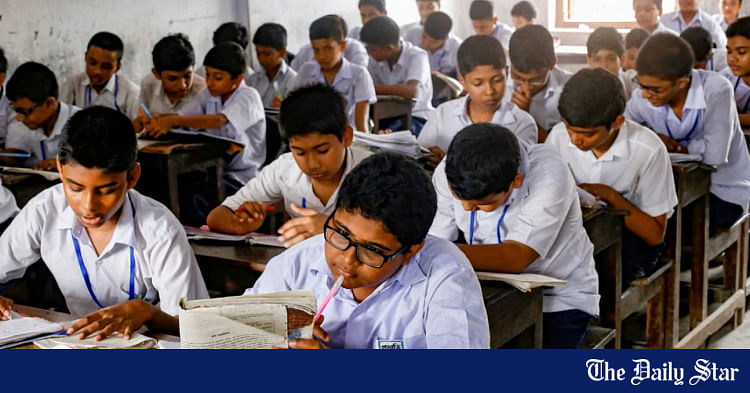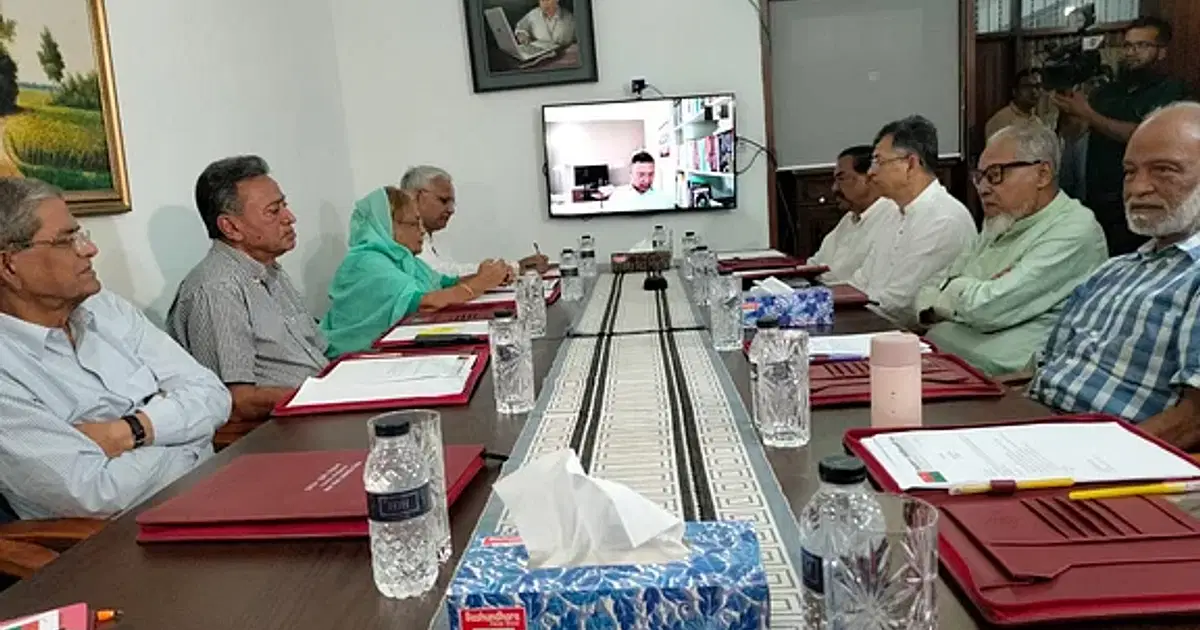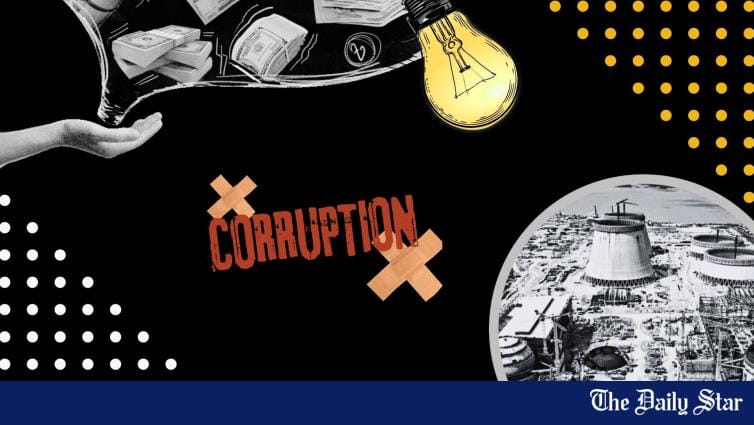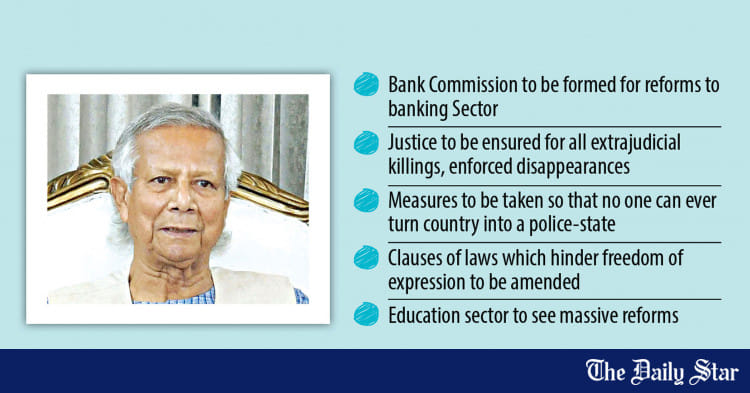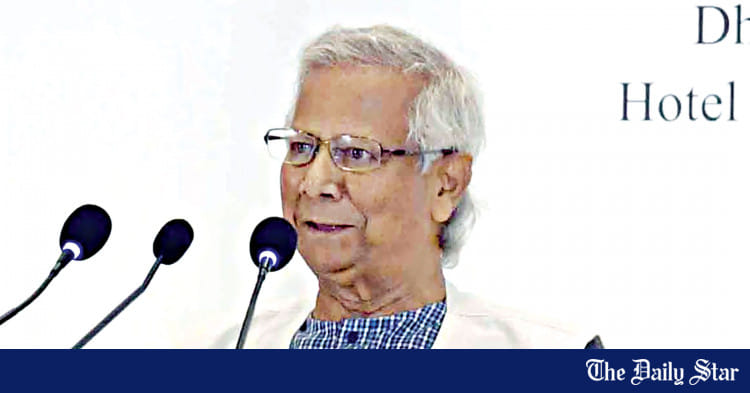Saif
Senior Member
- Messages
- 17,481
- Likes
- 8,438
- Nation

- Residence

- Axis Group


Government committed to creating environment for free, fair elections: Chief Advisor
Chief Advisor Muhammad Yunus said his government is committed to transitioning Bangladesh to an inclusive and pluralistic democracy and creating an environment conducive to free, fair, and participatory elections. He made these remarks on Saturday during the Leaders' Session of the 'Third Voice of
Government committed to creating environment for free, fair elections: Chief Advisor
bdnews24.com
Published :
Aug 17, 2024 22:38
Updated :
Aug 18, 2024 01:10

Photo: PID
Chief Advisor Muhammad Yunus said his government is committed to transitioning Bangladesh to an inclusive and pluralistic democracy and creating an environment conducive to free, fair, and participatory elections.
He made these remarks on Saturday during the Leaders' Session of the 'Third Voice of Global South Summit-2024,' held in New Delhi, India.
The interim government head said, "The youth have driven the movement with a vision of revolutionary change, and their aspirations have resonated with the entire nation. Now, meaningful reforms are essential to ensure democracy and human rights, which will restore all the weakened institutions of the state."
bdnews24.com
Published :
Aug 17, 2024 22:38
Updated :
Aug 18, 2024 01:10
Photo: PID
Chief Advisor Muhammad Yunus said his government is committed to transitioning Bangladesh to an inclusive and pluralistic democracy and creating an environment conducive to free, fair, and participatory elections.
He made these remarks on Saturday during the Leaders' Session of the 'Third Voice of Global South Summit-2024,' held in New Delhi, India.
The interim government head said, "The youth have driven the movement with a vision of revolutionary change, and their aspirations have resonated with the entire nation. Now, meaningful reforms are essential to ensure democracy and human rights, which will restore all the weakened institutions of the state."



